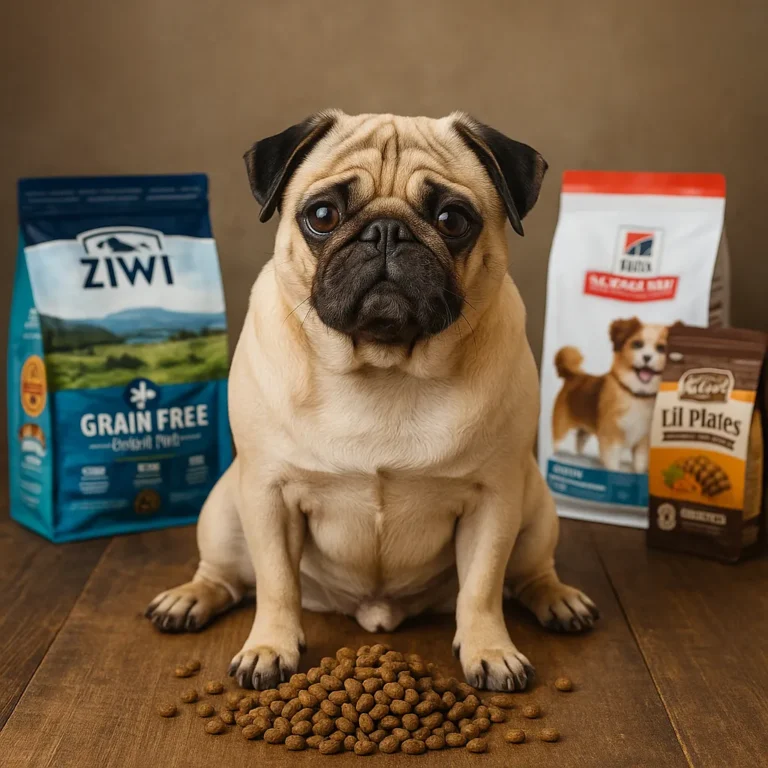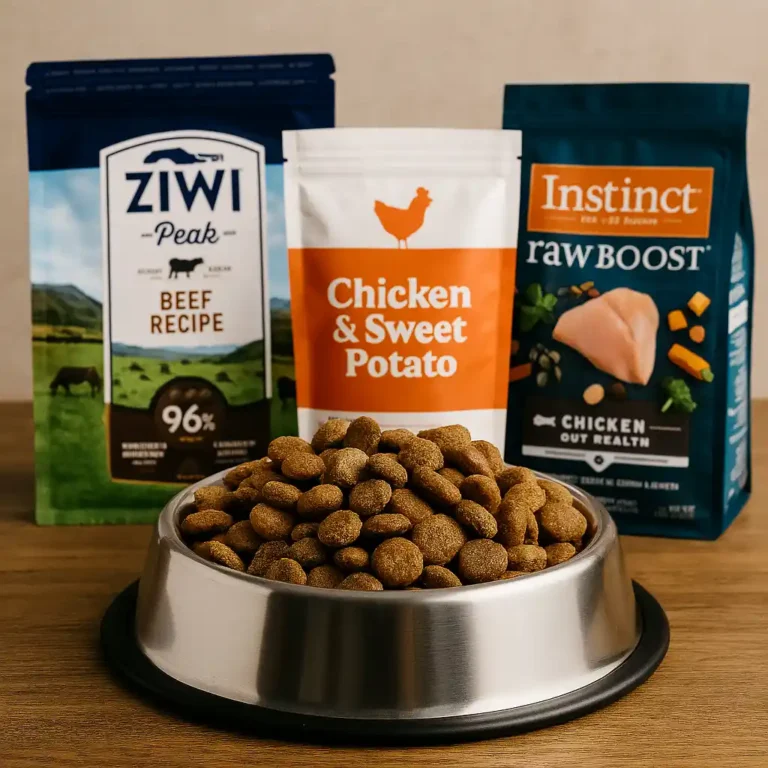Good Dog Food for Dogs with Allergies: Best Choices for Pugs

Pugs are adorable, affectionate companions, but they’re also prone to food allergies. If your pug struggles with itchy skin, digestive issues, or persistent ear infections, their diet may be the cause. Choosing the right food can significantly improve your pug’s health and comfort.
Here are some top recommendations for dog food designed to reduce allergies while keeping your pug happy and healthy.
Understanding Food Allergies in Pugs
Pugs are particularly susceptible to food sensitivities. Common allergens for pugs include:
- Beef
- Chicken
- Dairy
- Wheat
- Soy
Symptoms of food allergies in pugs may include:
- Persistent scratching or licking
- Red or inflamed skin
- Digestive issues like vomiting or diarrhea
- Frequent ear infections
Switching to a high-quality, limited-ingredient diet can help minimize these reactions.
Best Dog Foods for Pugs with Allergies
Here are three highly recommended dog foods that address common allergy triggers while providing balanced nutrition for your pug.
1. ZIWI Peak Air-Dried Dog Food – Venison + Tripe & Lamb
Key Features:
- Uses limited ingredients to reduce allergy triggers.
- Contains venison and lamb, alternative protein sources that are ideal for pugs with sensitivities to beef or chicken.
- Air-dried for optimal nutrient retention with no artificial additives.
- Includes green mussels for natural joint support.
Why It’s Great for Pugs: The air-dried formula is nutrient-dense, allowing your pug to eat smaller portions while still receiving all the essential nutrients.
2. Now Fresh Grain Free Small Breed Dog Food (Puppy & Adult Bundle)
Key Features:
- Crafted with 100% fresh meat — no by-products or artificial fillers.
- Completely grain-free, making it ideal for pugs prone to grain allergies.
- Specifically designed for small breeds, ensuring smaller kibble for your pug’s compact jaw.
- Packed with omega oils for healthy skin and coat.
Why It’s Great for Pugs: The small kibble size and allergy-friendly recipe make it an excellent choice for pugs with sensitive stomachs.
3. Wellness Well Pack: Simple Limited Ingredient Turkey Diet (Wet & Dry Combo)
Key Features:
- Formulated with limited ingredients to minimize allergy risks.
- It features turkey as the primary protein source, which is ideal for pugs sensitive to common proteins like chicken or beef.
- Combines wet and dry food for variety, hydration, and taste.
Why It’s Great for Pugs: The turkey-based formula is gentle on digestion, and the mix of wet and dry options makes mealtime more enjoyable.
Tips for Transitioning Your Pug to New Food
To prevent stomach upset when switching foods:
- Start Slowly: Gradually mix the new food with your pug’s current food over 7-10 days.
- Monitor for Reactions: Watch for improved symptoms like reduced itching, healthier skin, or improved digestion.
- Consult Your Vet: If symptoms persist, your vet may recommend allergy testing or further dietary adjustments.
Conclusion
Choosing the best dog food for your pug’s allergies can dramatically improve their quality of life. The ZIWI Peak Air-Dried Dog Food, Now Fresh Grain Free Small Breed Dog Food, and Wellness Well Pack Limited Ingredient Turkey Diet are all excellent options for managing food sensitivities. By selecting high-quality, allergy-friendly formulas, you can help your pug feel better, look healthier, and enjoy life to the fullest.






